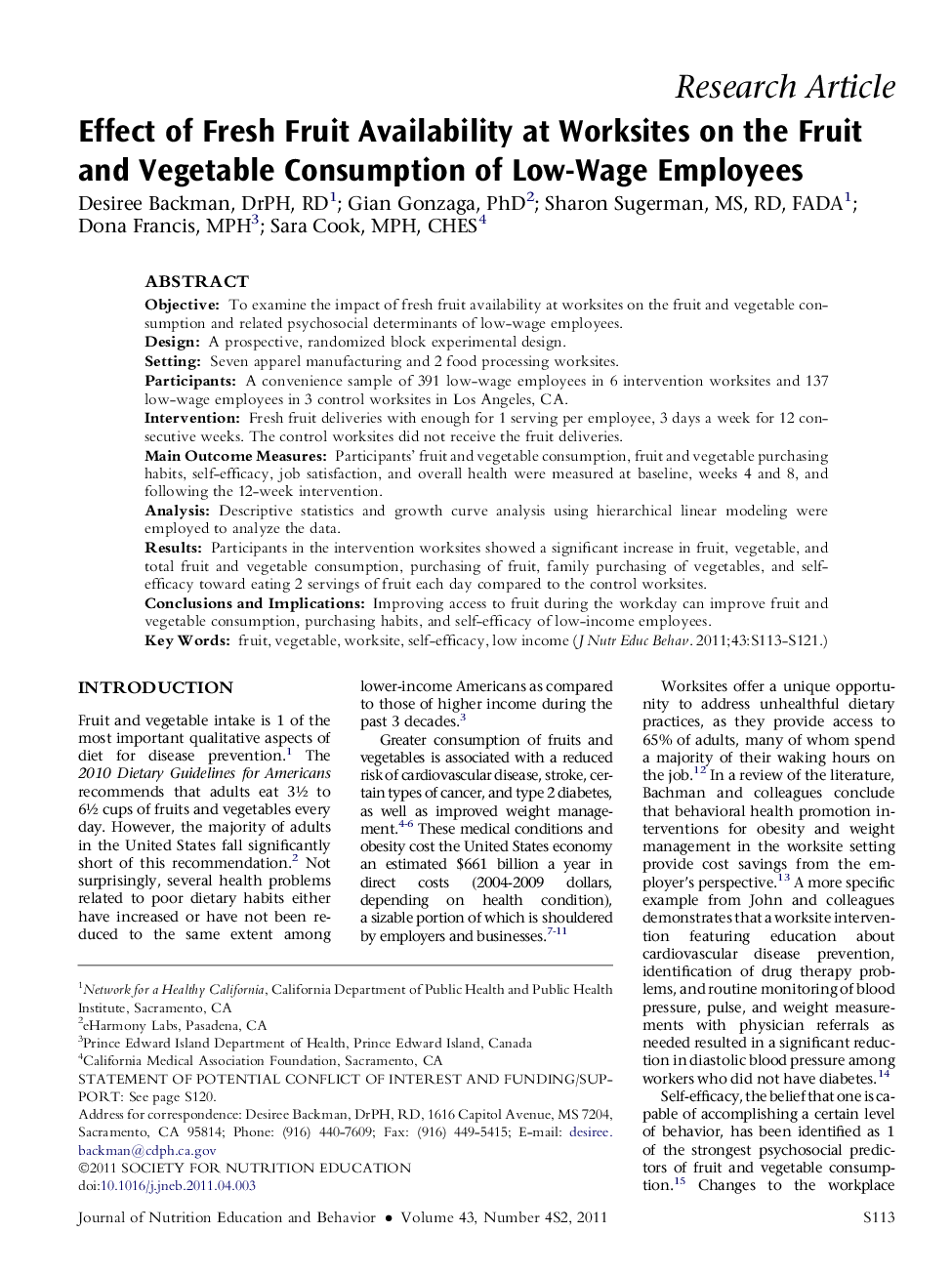| Article ID | Journal | Published Year | Pages | File Type |
|---|---|---|---|---|
| 362406 | Journal of Nutrition Education and Behavior | 2011 | 9 Pages |
ObjectiveTo examine the impact of fresh fruit availability at worksites on the fruit and vegetable consumption and related psychosocial determinants of low-wage employees.DesignA prospective, randomized block experimental design.SettingSeven apparel manufacturing and 2 food processing worksites.ParticipantsA convenience sample of 391 low-wage employees in 6 intervention worksites and 137 low-wage employees in 3 control worksites in Los Angeles, CA.InterventionFresh fruit deliveries with enough for 1 serving per employee, 3 days a week for 12 consecutive weeks. The control worksites did not receive the fruit deliveries.Main Outcome MeasuresParticipants’ fruit and vegetable consumption, fruit and vegetable purchasing habits, self-efficacy, job satisfaction, and overall health were measured at baseline, weeks 4 and 8, and following the 12-week intervention.AnalysisDescriptive statistics and growth curve analysis using hierarchical linear modeling were employed to analyze the data.ResultsParticipants in the intervention worksites showed a significant increase in fruit, vegetable, and total fruit and vegetable consumption, purchasing of fruit, family purchasing of vegetables, and self-efficacy toward eating 2 servings of fruit each day compared to the control worksites.Conclusions and ImplicationsImproving access to fruit during the workday can improve fruit and vegetable consumption, purchasing habits, and self-efficacy of low-income employees.
